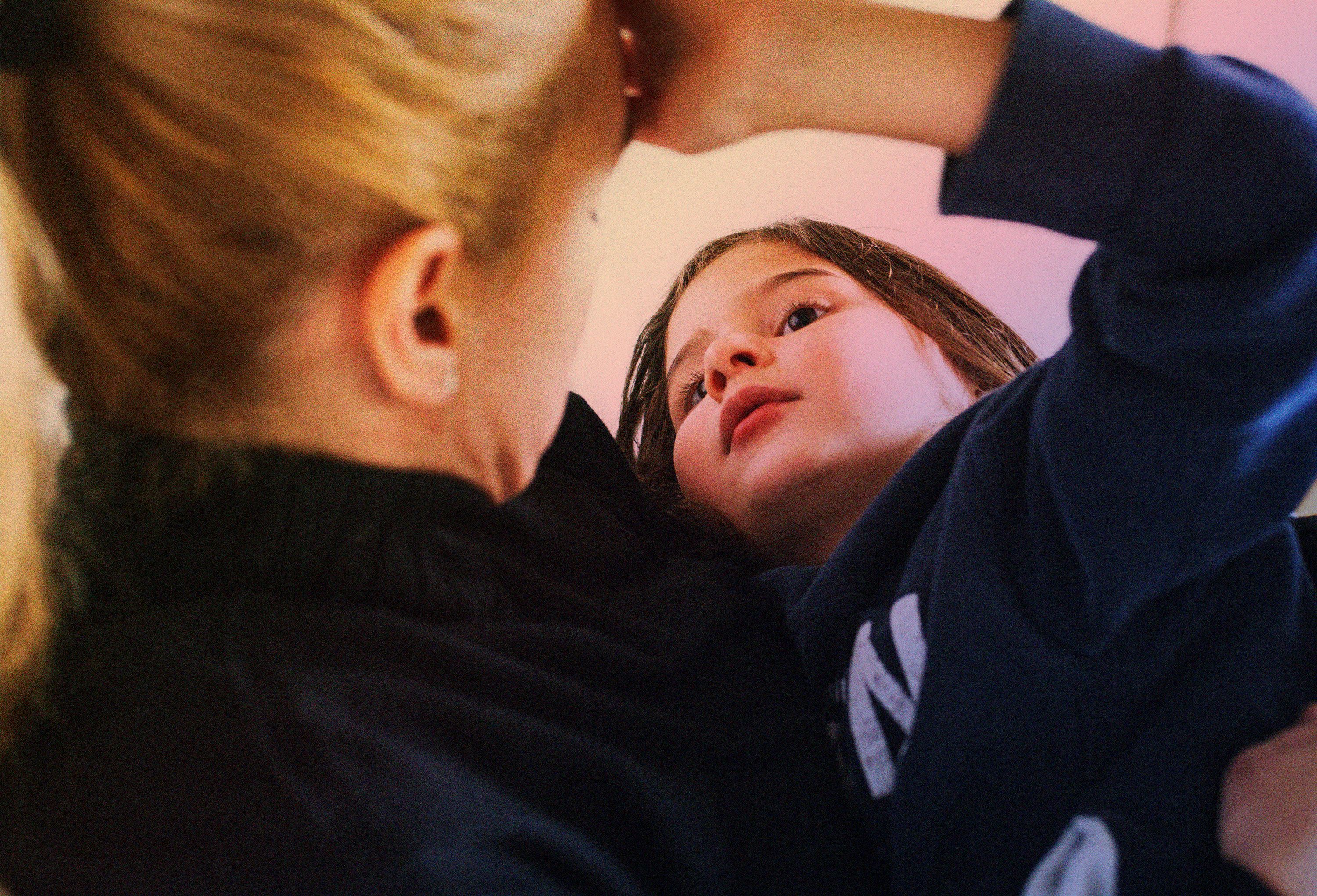
On a muggy summer day in 2018, Lucía Leal and her husband called their three kids into the living room of their suburban Houston home. There was something they needed to tell them. Lucía, then 36, had been diagnosed with stage 4 ovarian cancer. Her children, a boy and two girls, were 11, 6, and 2.
Her doctor had given her some pointers: Be honest; use simple, age-appropriate language; encourage questions. Still, the experience was grueling. “I felt sad for them,” she said. “You just want to keep them safe and happy. To this day, I feel bad that they had to go through that.”
The recent cancer diagnosis of Catherine, Princess of Wales, has stirred up emotions for women who can remember exactly what it’s like to have to tell your kids you have cancer. I know because I’m one of them: When I was 37 and my oldest child was 4, I found out I had breast cancer. Listening to the royal statement last week, it was the poignant phrase “our young family” that took me right back to that awful, tender time.
“You ache for her,” said Sarah Jones Simmer, 40, a tech executive in Austin who was diagnosed with stage 3 breast cancer in 2020 when her daughters were 3 and 5. Catherine may be a princess and one of the most famous women in the world, but “she’s still a mother that’s going to have to sit down with her kids and try to make them feel better while she herself feels terrible,” said Elyse Chambers, 41, a writer in Napa Valley who went through treatment for stage 4 non-Hodgkin lymphoma when her daughters, now 7 and 4, were younger.
It can be hard to explain to kids something you’re still struggling to grasp yourself, said Aimee Eriksen, a special-education teacher in a suburb of St. Paul, Minnesota, who was 34 and barely a year out from having her third child when she was diagnosed with stage 2 breast cancer. Telling her two eldest boys, then 3 and 5, was “surreal, like an out-of-body experience,” she said. She tried hard to hold it together so she didn’t scare them, “but you think, like, Oh my gosh, is this the only birthday party I’m going to be at for my 1-year-old? Is this the last Christmas I’m going to have?”
Most agonizing of all, she said, was the fear that what she had represented to her kids their entire lives — security, comfort, infallibility — was now crumbling in real time: “Because, you know, you’re Mom, and you’re the one who makes things better. And this was a situation where I was like, I can’t make it better.”
When Sarah told her children, “the hardest question to answer was ‘What does this mean?’” she said. “And there’s a spectrum of ways you can answer that.” At one end, it meant she was about to lose her hair. At the other, it meant some people don’t survive cancer and she had no idea if she would be one of them. The scope of a cancer diagnosis, of what may or may not happen when you receive one, “is a very hard concept to explain to a 3- and a 5-year-old,” she said.
Plus, while you can be deliberate and sensitive in the way you tell your kids, you can’t control what they hear on the playground. When the subject of Sarah’s cancer has come up at her older daughter’s school, “her classmates will say, ‘Oh, my grandma had cancer and she died.’” Lucía still worries about how her kids, now 16, 10, and 7, see cancer portrayed on television — and that’s all while knowing that, unlike Catherine’s, her health won’t make headlines.
When Aimee first told her two older kids about her diagnosis, “they were just like, ‘Okay, I’m going to go and play LEGOs,’” she said, laughing. Not until her appearance changed with chemo did they start to get more emotional. Now, at ages 9 and 7, they remember her being sick, she said, but their memories are surprisingly positive: the pretty head scarves she wore, the smoothies they would make together when it was all she could stomach.
Lucía has learned that when she and her husband call the kids together to tell them something innocuous, “it’s like PTSD for them,” she said. “I have to say no, no, no, it’s nothing bad.” Sarah has noticed that when she goes on business trips, her older daughter worries that she won’t come back. “I do sometimes wonder if that was too much information for her to absorb all at once, too many unknowns,” she said. “As moms, we always look back with guilt and think, Would I have done something differently?”
In fact, I would have done something differently, I tell her: I would have talked to my kids about my cancer diagnosis earlier than I did. I wouldn’t have let it feel like a secret I was keeping from them. I wouldn’t have been so terrified of how they might react.
But, as with so many things, there’s no perfect way to handle the situation, which is nuanced and knotty and can seem impossible to navigate while you’re literally fighting for your life.
“Every kid is different. At the end of the day, they just need to feel your love and support,” Sarah said. “I made the opposite choice that you did, and I have the same guilt that you do — which I think is just motherhood in a nutshell.”
By Holly Burns , 2024-03-26 18:56:10
Source link


